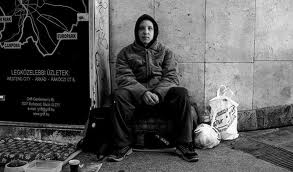 Imagine arriving at church this Sunday, sitting in your favorite pew or seat. As the service begins, you notice one of the junior high students from the youth group walks up to the pulpit. You think for a moment, "Oh, this will be cute, we're having one of the youth do an opening song or the church announcements." To your utter shock, the lone youth begins to rattle off facts regarding the Second Coming of Christ, but then brings it to a awe-striking climatic end by saying this, "Today, these words have been fulfilled in your midst!"
Imagine arriving at church this Sunday, sitting in your favorite pew or seat. As the service begins, you notice one of the junior high students from the youth group walks up to the pulpit. You think for a moment, "Oh, this will be cute, we're having one of the youth do an opening song or the church announcements." To your utter shock, the lone youth begins to rattle off facts regarding the Second Coming of Christ, but then brings it to a awe-striking climatic end by saying this, "Today, these words have been fulfilled in your midst!"To some extent, that's comparative to what Jesus did in a synagogue in Nazareth. Jesus stood to orally submit his, mission statement:
"The Spirit of the Lord is on me, because he has anointed me
to preach good news to the poor.
He has sent me to proclaim freedom for the prisoners
and recovery of sight for the blind, to release the oppressed,
to proclaim the year of the Lord's favor." (Luke 4:18-19)
Then he concluded by saying that these words, this prophecy of the Messiah has been fulfilled.
I believe this pericope is Christ' mission statement. I also believe it provides a healthy plumb-line for us to answer well whether or not we are living out the gospel. And, if we investigate these texts of scripture a little more elaborately, we find that the gospel is not merely about preaching a message with the goal of saving a soul, but is also about the restoring, redeeming, and rehabilitation of a life. The good news which Christ came to deliver is a complete gospel, what Richard Stearns (author of The Hole In Our Gospel) has come to call the whole gospel. That is to say, the good news Jesus proclaimed was news which was experienced both spiritually as well as tangibly.
In looking at this passage from Luke 4, we see five hallmarks which make up the aims of this good news Christ came to deliver.
First, we see a call to preach good news to the poor. It's important that we take note of whom this good news was to be preached to - the poor. It is equally important that we not limit poor to those of a lower economic status. Christ was no doubt referring to the financially destitute of our society, that specifically the poor play a specific role in God's missional plan to in-break his kingdom into our world. Often times the poor are victims of economic oppression in countries, thus making them incapable of being self-sustaining. For example, while in Uganda working with IJM, we will be working amongst victims who have had their property seized illegally, leaving them without any land to grow a crop, have a dwelling area, and or raise some sort of livestock (Read a real property grabbing story). Without land, they have no chance of supplying anything which is in demand, and thus, cannot survive.
 Here in the West, we have a tendency to frown upon the poor of inner cities, being deceived by the notion that they deserve to be poor only because of poor choices. Though there is truth to poor choices which one may have made, thus evoking their financial state, that is not to evoke a judgment from others upon them. Instead, regardless if someone is what society displays as poor because of poor choices or if someone is destitute due to suffering from a form of injustice, as Christians, we are still to be moved to do something. This gospel, the whole gospel, is one which transcends this economic barrier and breaks the dam around our heart allowing to flow freely what needs to be tears of compassion. This compassion is to move us to these individuals, taking action on their behalf.
Here in the West, we have a tendency to frown upon the poor of inner cities, being deceived by the notion that they deserve to be poor only because of poor choices. Though there is truth to poor choices which one may have made, thus evoking their financial state, that is not to evoke a judgment from others upon them. Instead, regardless if someone is what society displays as poor because of poor choices or if someone is destitute due to suffering from a form of injustice, as Christians, we are still to be moved to do something. This gospel, the whole gospel, is one which transcends this economic barrier and breaks the dam around our heart allowing to flow freely what needs to be tears of compassion. This compassion is to move us to these individuals, taking action on their behalf.
At the same time, poverty is not merely an economic state. It is also a spiritual one. People become millionaires regularly, and more and more are crossing over to ten figures (making them a billionaire). Whether middle class, millionaires or billionaires, without Christ, you are eternally poor. And thus, we learn another token of this whole gospel: every economic class is an audience for this gospel. This gospel, is good news for all.












